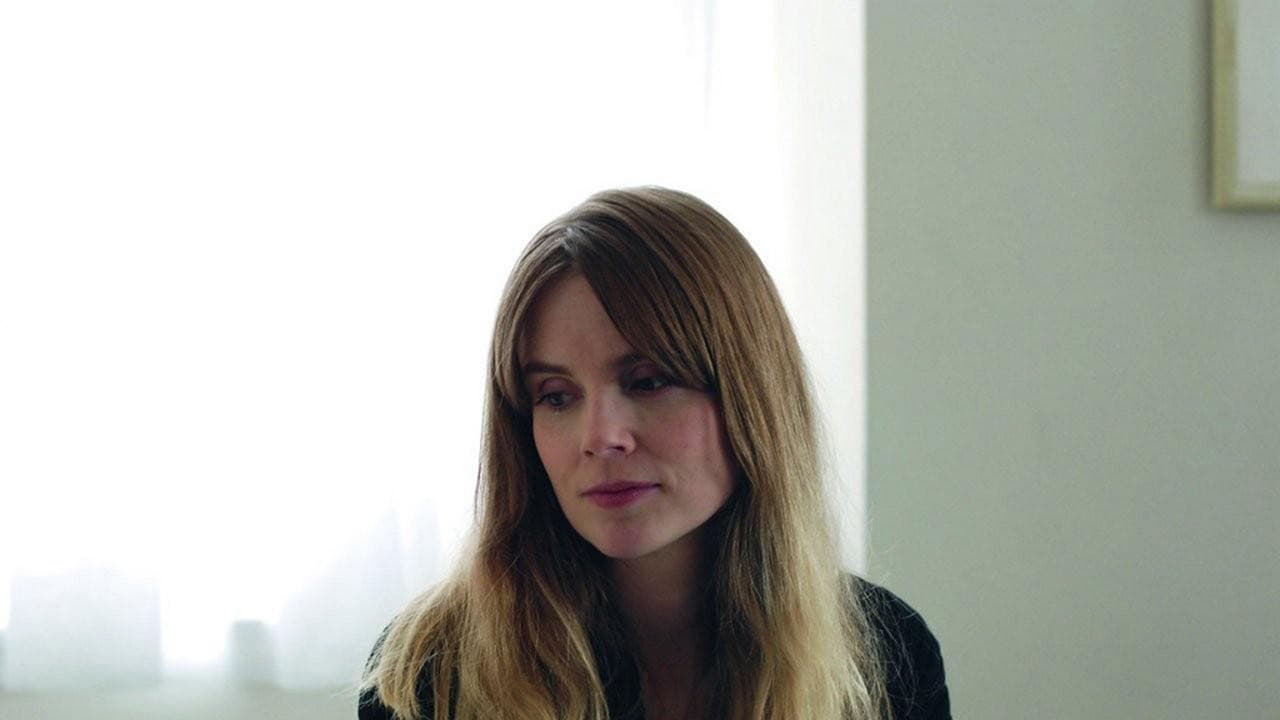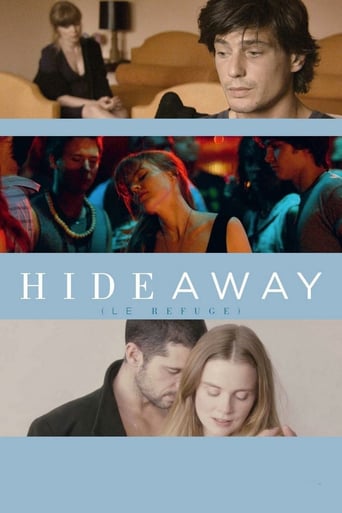

One of the worst movies I've ever seen
... View MoreThis is a coming of age storyline that you've seen in one form or another for decades. It takes a truly unique voice to make yet another one worth watching.
... View MoreThis film is so real. It treats its characters with so much care and sensitivity.
... View MoreIt is neither dumb nor smart enough to be fun, and spends way too much time with its boring human characters.
... View MoreTwo drug addicts have a baby but the father dies from overdose. This is before the birth of the baby.The mother manages to get help from someone who provides her a house in a village. She meets a friend, and then later, a one-night stand lover.The mother abandons the baby to the friend. Hopefully this friend will be a good parent, so she can find herself (get high?).We can predict the baby will likely become a future drug addict, lacking in responsibility, like his parents.This movie shows why a nanny-state nation degrades over time - dependency and irresponsibility are fostered by the nanny-state.Many viewers may be emotionally moved by the sad state of affairs depicted in "Hideway", but I see a situation that could have been prevented by a culture that encouraged less dependency and more responsibility in its citizens.
... View MoreFor me there was only one reason to watch this film: Isabelle Carre. The esteem in which Francois Ozon is held has, alas, always been something of a mystery to me and I tend to see his films because he has a penchant for working with luminous actresses such as Valeria Bruni-Tedeschi (5x2, Time To Leave), six of the 8 Women, and now Isabelle Carre. Possibly because of her slight build, porcelain skin, blonde hair, etc Carre is often cast in 'fragile' roles but she did turn 40 last year and IS a bona fide actress so perhaps it is understandable that she wants to extend herself (Anna M, for example) which may explain why she spends the opening reel here as a haggard, wretched, drug abuser. Within weeks - easy to calculate because she learns she is pregnant early on) she is more or less clean and able to look radiant. A fine film but only because of Carre.
... View MoreI.V. drug use and pregnancy don't mix, but that is a fact smoothed over in this chic meditation by François Ozon, who enlisted the actually pregnant Isabelle Carré as the lead. In the prologue, the innocent-looking Emile Berling is the dealer who brings a fatal dose that kills off boyfriend Louis (Ozon's Time to Leave star Melvil Poupaud) and lands girlfriend Mousse (Carré) in the hospital. There, awakening from a drug coma, she learns she is pregnant by Louis. A post-funeral interlude with Louis' posh family follows in which we learn he has a handsome gay brother, Paul (Louis-Ronan Choisy). The parents seem to differ sharply on which sibling they'd rather have given up; the father is devastated by Louis' early demise, the mother feels somehow vindicated. Eventually we get a glimpse at why, though in this pretty film, relationships are more talked about than acted out on screen.Mousse moves to a spacious house in the country near the beach lent her by an older former lover, and here she leads a quiet but rather lonely existence, having groceries delivered by a local, Serge (Pierre Louis-Calixte). Along comes Paul on a visit. Uninvited and at first unwelcome, he nonetheless lingers for a while and hugs, talks, and a visit to an ear-splitting disco follow in which the two bond and details of their lives are revealed. Mousse gets an opportunity to process her relationship with Louis and achieve a degree of emotional closure. However, it seems Paul is a more appropriate parent for her child than she is. Even though he gets drunk a lot, spends his time on the beach, and has a fling with Serge, who turns out also to be gay.Once we've gotten past Louis' and Mousse's empty flat and overused veins in the prologue, Le refuge is beautiful to look at, and its melancholy happens in summer sunlight. It's an upscale, French version of a Hollywood movie, but with the punch-line scrupulously removed. It's just an exploration of themes. But what themes? Certainly drug addiction and pregnancy are not subjects treated in any depth. Using an actually pregnant actress and having various people touch or listen to her belly never keep this from being a strangely clueless tour of expectant motherhood. Mousse periodically quaffs vials of Methadone, but the significance of this for a pregnant woman is barely touched on. One wonders whether, were he not as handsome, suave, and sun-kissed, Paul's presence as a family therapist would be as welcome.Ozon isn't flip or stylistically playful as he is in films like Swimming Pool or 8 Women, or (most of all) Water Drops on Burning Rocks; this is more the serious vein of Time to Leave, and has a feeling that's more lyrical and sweet than any of these, perhaps a bit like Under the Sand. But there is a troubling sense of serious matters alluded to, but insufficiently addressed. Despite reference to such heavy stuff as drug addiction, single pregnancy, and loneliness, Le refuge (doesn't the title itself focus on escape?) makes them all seem too easy, assuaged by sun and sea and a handsome, conveniently undemanding gay man. Le refuge winds up being a vague, glossy advertisement for gay parenthood. In his mid-forties now, the prolific Ozon is moving toward more serious subject matter, but seriousness doesn't always mean depth. His moments of boldness may work better when they're a bit more flip and sassy. Le refuge winds up being flat and obvious, despite its elegance.Le refuge was co-scripted by Ozon with Matthieu Hippeau. After going the rounds of some festivals (it won a special prize at San Sebastian), the film opened in Paris January 27, 2010 to generally lukewarm but not unkind reviews. It has gotten good international distribution and will be released in the US by Strand. It was part of the uni-France/Film Society of Lincoln Center series the Rendez-Vous with French Cinema in March 2010 with screenings at the Walter Reade Theater and IFC Center.
... View MoreA film of a modest budget, a film made in the sunny Pays Basque and a film which captures a real pregnancy. As a matter of fact, The Refuge is "born" of this idea to film a pregnancy, and this movie benefits this particular occasion. But let's say it is not a typical idyllic portrayal of a pregnancy or of a pregnant woman. The only thing that may be idyllic, is the sun of the south of Europe. Otherwise, this is a capture of troubled lives and troubled personalities. The start of The Refuge is marked by a death by a drug overdose. Useful to say that the bunch of takes in beginning does not transmit even little of the richness of the future images of film. But who knows, maybe the cliché full drug taking scenes are there to underline the contrast. Anyways, the decease of the character of Louis, puts an ending to a love story - a very brief moment. Nevertheless, there is another story on the way and the principal figure of this film, Mousse, miraculously alive, carries it in her belly. And here begins the refuge where two characters, Paul and Mousse, try to figure out their lives. Paradoxically, these two lives are not so related as much as one can probably think, as they are put so close. Passing to the refuge in Basque Country, Ozon makes sure that the spectator draws a clear line in his mind by the change of tonalities – grim and gray for Paris and pastel and sunny for the south. Despite the posh ambiances of Paris surroundings and idyllic summer of southern Europe, the images speak generally of troubled lives. They portray a woman, struggling with the sudden solitude and a man, trying to find where exactly he belongs. The director puts on the screen a pregnancy that troubles the spectator more than the mother. Quite an ironic manipulation with those in front of screen – they experience the turbulence knowing that the heroine is still taking methadone and does not refuse alcohol or a night in club with music roaring loudly. But truly, it's all not about this. She is well aware of her pregnancy, but this is a different kind of pregnancy. It is not for the sake of it, it is for the sake of keeping the life. The big belly evokes the presence of Louis, who is gone and the presence of the baby, who hasn't yet arrived. It's nice to see, that director has found out, that pregnancy can be be showed as an instrument of portrayal or a link among other elements of the film. For example, it allows to grasp the personality of Mousse. It is like some sort of mourning which passes very silently, without hysterical and loud scenes. Like the way she is – very introvert and calm, keeping all the troubles inside; nevertheless the situation permits to see her desire for independence and stubborn nature. In addition, who would have thought, that giving different sexual orientations to the principal characters, permits so precisely to limit any kind of romance, even placing both in one, relatively isolated space and time. And even if Ozon lets happen something, it still is for the sake of the story, not for the comfort of spectators' expectations. Also, it has to be admitted, that Isabelle Carré looks beautiful and plays admirably the role of Mousse, in a way, living through two stories of one pregnancy.
... View More